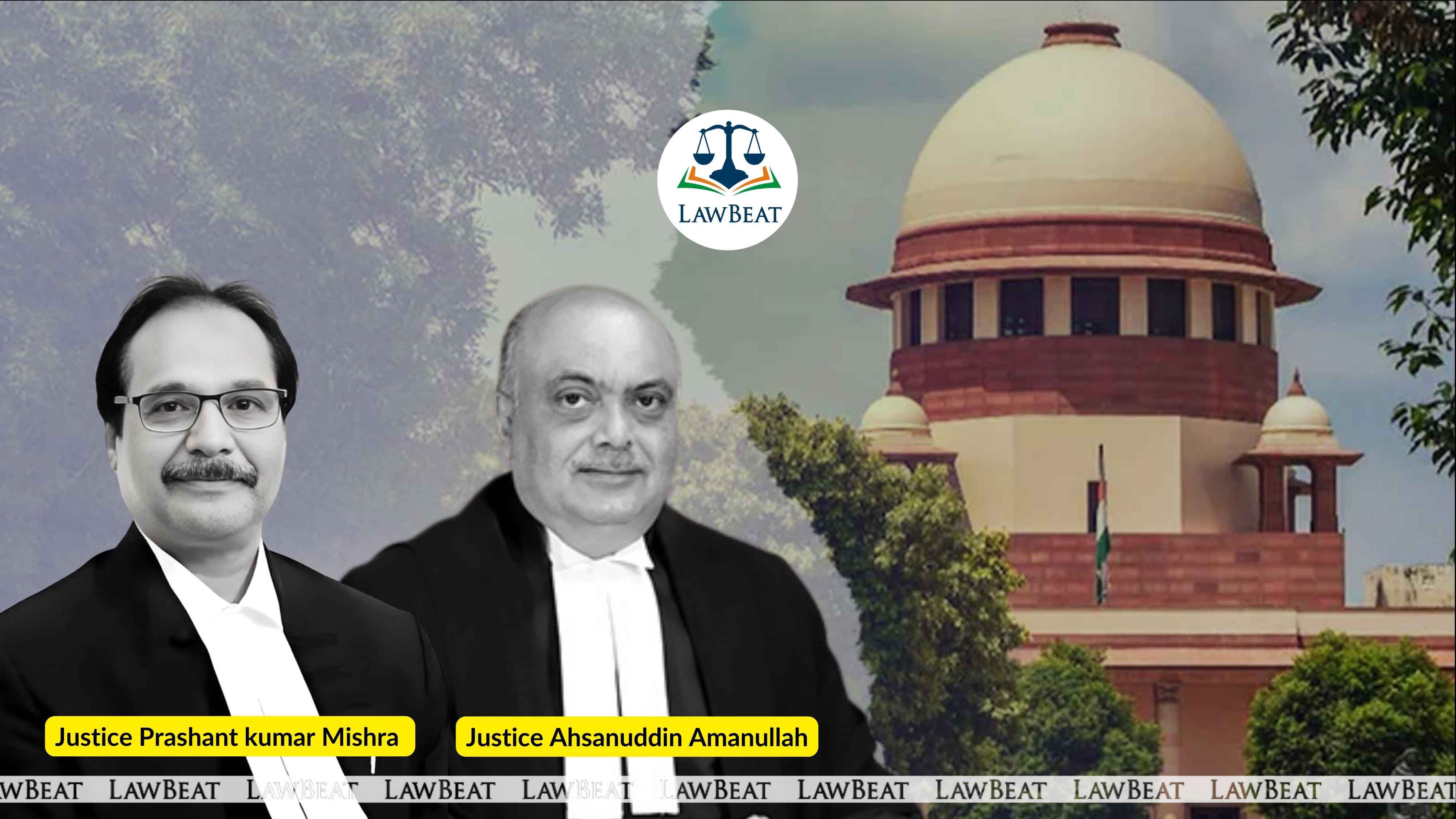Even criminal enjoys certain safeguards, SC castigates Haryana police for high-handedness in arresting man

The police is a very vital part of the State apparatus and has a direct bearing on the safety and security of the society at large and individuals in particular, therefore, the need for maintaining the confidence of individuals and society-at-large in the police is paramount, court said
The Supreme Court has said that even a ‘criminal’, under the law of our land, enjoys certain safeguards in order to ensure protection of his person and dignity, as it castigated the Haryana police for high-handedness in arresting a man.
A bench of Justices Ahsanuddin Amanullah and Prashant Kumar Mishra asked the police heads of all the States and Union Territories to ensure strict adherence to the safeguards available to a person under custody.
Petitioner Vijay Pal Yadav contended that he was not subjected to due treatment required under law by the police, when they investigated a dispute he had with his neighbour. He contended that the law, as settled in Arnesh Kumar Vs State of Bihar & Another, (2014) regarding arrest, had been totally flouted. His further contention was that the high-handedness of the police was such that he was subjected to physical abuse, both at the spot as well as later in the Police Station.
His counsel contended the petitioner's brother sent an e-mail at 11:24 AM on the same day as also to the concerned Superintendent of Police, where it was alleged that the police had arrested his brother. There was physical abuse at the Police Station, only because an e-mail was sent to the higher officials, as a knee-jerk reaction, a First Information Report was lodged against him two hours later at 01:30 PM, at which time the petitioner is said to have been taken into custody.
The bench, which sought personal presence of Haryana DGP, said, "We find that there appears to be evident high-handedness on the part of the police in this case. Even if a person may be a ‘criminal’, the law requires that he be treated in accordance therewith. Even a ‘criminal’, under the law of our land, enjoys certain safeguards in order to ensure protection of his person and dignity".
In this case, the petitioner, when picked up by the police, was at best an accused. It is possible to state that a common man can be expected to exceed his limits (whereafter appropriate action in law shall ensue), but not the police, the bench pointed out.
"Be that as it may, since already much water has flown and there is a proper police case, of which the concerned Court is in seisin, we consider it appropriate to close the present proceedings. Dependent on the outcome of the police case, parties shall have legal remedies as available in law," the bench said.
However, the court cautioned and warned the concerned police officers to be careful in future.
The Director General is also directed to ensure that such type of occurrences do not recur and there should be zero-tolerance on behalf of the senior officer(s) with regard to any alleged transgression of authority by any subordinate officer(s), the court ordered.
The bench emphasised the police is a very vital part of the State apparatus and has a direct bearing on the safety and security of the society at large and individuals in particular. The need, therefore, for maintaining the confidence of individuals and society-at-large in the police is paramount.
The counsel for the State of Haryana also showed the checklist under Section 41(1)(b) (ii) of the Code of Criminal Procedure, 1973. The court, however, said perusal of the same prima facie did not inspire confidence. Rather, it appeared that only as a formality, the same had been submitted.
"We express our strong reservations with regard to filling-up of the checklist in a mechanical manner. Further, we caution and order that in futuro, such acts should not recur," the bench said.
The court stressed the Judicial Magistrate before whom the checklist was submitted, would also be under an obligation to carefully apply his mind and not, as a matter of routine, accept such a checklist.
"We are confident that the Director General of Police has been appropriately sensitized and expect that transgressions of the nature alleged herein would not happen again. Failing which, as and when the same is brought to our notice, a very strict view shall be taken, and coercive measures shall also follow against the errant personnel," the bench said.
The bench cited its judgment in the case of Somnath Vs State of Maharashtra (2023), which stated that it is sad that even today, this court is forced to restate the principles and directions in D K Basu case. There will be a general direction to the police forces in all States and Union Territories as also all agencies endowed with the power of arrest and custody to scrupulously adhere to all Constitutional and statutory safeguards and the additional guidelines laid down by this court when a person is arrested by them and/or remanded to their custody, the court had then said.
The court directed its registry to mark a copy of this order and the judgment in the Somnath case to the Directors General of Police of all the States and Union Territories, including the Commissioner of Police for the National Capital Territory of Delhi, as a reminder to strictly adhere to all safeguards available to persons under custody.
Case Title: Vijay Pal Yadav Vs Mamta Singh & Ors
